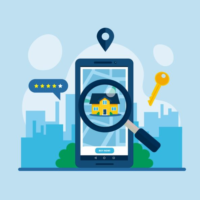BLOCKCHAIN AND TOKENIZATION IN REAL ESTATE VALUATION
Blockchain and Tokenization in Real Estate Valuation
Blockchain technology has made significant strides in various industries, and the real estate sector is no exception. One of the most promising applications of blockchain in real estate is the concept of tokenization. Tokenization involves representing ownership or rights to an asset as digital tokens on a blockchain. In the context of real estate, this means converting physical properties into digital tokens that can be bought, sold, and traded seamlessly on a blockchain-based platform. This innovation is set to revolutionize the way we value and invest in real estate.
Key Points:
1. Fractional Ownership
Tokenization allows for the division of real estate properties into smaller, tradable units. This fractional ownership model opens up investment opportunities to a broader range of investors who can now purchase a fraction of a property rather than the entire asset. This democratization of real estate investment can increase liquidity in the market and reduce the barrier to entry for new investors.
2. Increased Liquidity
Traditional real estate investments often lack liquidity, as buying or selling a property can be a time-consuming and costly process. With blockchain and tokenization, property owners can easily sell their digital tokens representing ownership, providing a more liquid market for real estate assets. This increased liquidity can lead to faster transactions and potentially higher property values.
3. Transparency and Security
Blockchain technology’s inherent characteristics, such as immutability and transparency, make it an ideal solution for real estate transactions. Property ownership records and transaction histories can be securely stored on a blockchain, reducing the risk of fraud and disputes. Investors can also verify property details and ownership in real-time, enhancing trust in the market.
4. Reduced Transaction Costs
Tokenization can significantly reduce the costs associated with real estate transactions. Traditional property transfers involve intermediaries, such as brokers, lawyers, and notaries, who charge fees for their services. With blockchain, these intermediaries can be minimized or eliminated, leading to cost savings for both buyers and sellers.
5. Global Investment Opportunities
Blockchain-based real estate tokenization platforms have the potential to attract global investors. Investors from different parts of the world can access and invest in real estate assets without geographical limitations. This can lead to increased competition and capital inflow into local real estate markets.
6. Compliance and Regulation
As the adoption of blockchain and tokenization in real estate grows, governments and regulatory bodies are developing frameworks to ensure compliance and protect investors. It is essential for stakeholders to stay informed about evolving regulations to navigate this emerging landscape successfully.
7. Potential Challenges
Despite its potential benefits, tokenization in real estate faces challenges such as regulatory hurdles, technological infrastructure, and the need for education and awareness. Overcoming these challenges will be crucial for the widespread adoption of this technology.
In conclusion, blockchain and tokenization are poised to disrupt the traditional real estate valuation and investment landscape. Fractional ownership, increased liquidity, transparency, reduced transaction costs, global investment opportunities, and compliance are some of the key advantages offered by this technology. While challenges exist, the potential benefits make it an exciting development in the world of real estate. As blockchain and tokenization continue to evolve, they have the potential to reshape the way we perceive and participate in real estate markets.


